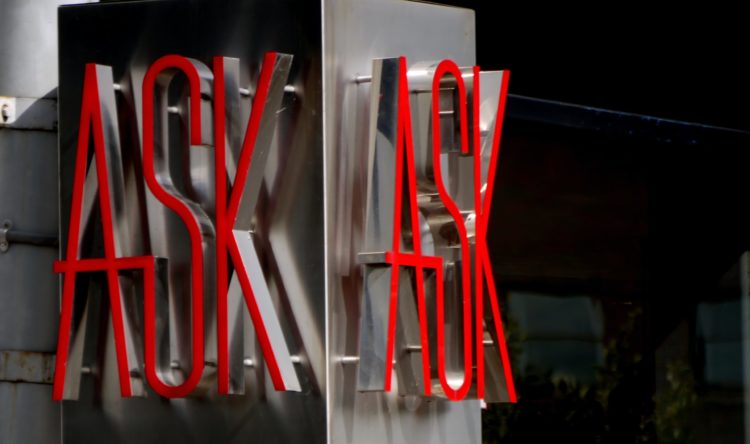Highlights of the latest NASP/DVSA meeting
All the latest issues discussed at industry meeting
NASP (National Associations Strategic Partnership) is the combine representative body for the driver training industry.
It brings together the the main ADI associations, including ADINJC, DIA and MSA.
Within this forum, representatives regularly meet with the DVSA to discuss current issues and national policies for driver training and testing in the UK. This both allows associations and their members to be kept up to date with any changes to the way the industry is regulated, but also allows for the discussion of any problematic issues. Additionally, the forum facilitates a more open discussion of possible improvements that could be made.
At this month’s meeting there were six senior DVSA staff members in attendance. There were numerous items on the agenda, and these are covered below:
Driving test waiting times
DVSA were invited to start with an update on driving test waiting times, DVSA replied, that the Business Plan quoted a national average target of 9 weeks December 2022, however, went on to say that this was a challenging target and it didn’t mean DVSA will achieve that. Although that is still the aim, and they were looking to publish more regular updates on where they are with reducing driving test waiting times. Some processes have been changed to speed things up, such as the recruitment of new examiners, and they were now doing more tests than ever before, but the demand is still high, some DEs are leaving and it’s a constant battle to try and stay on top of the numbers. DVSA is still trying to address the pent-up demand. DVSA felt the modelling to get back to a 9-week waiting time would be more achievable by February 2023, and it was a positive sign that things were not getting worse. DEs are still being recruited and going through the training process. There had been some delay in training over summer, but they are on course for 300 extra DEs as planned. They are looking at how they can bolster training towards the end of the year. NASP asked how many actual additional DEs would be in place as the business plan suggested much less than 300, DVSA agreed to update with that information.
DE resources
NASP enquired, how decisions are made on moving DEs around, as it seems that some areas with already high waiting times are losing DEs to other areas. DVSA replied, this was constantly under review to ensure a balance of demand needs, Birmingham is currently showing high demand for instructor tests and DVSA try to pump resources from areas with less demand.
Ready to Pass? campaign emails
NASP raised concern about DVSA advising pupils on choosing different times of day and areas that they are not used to, DVSA said they would look at this again, as previously have been focussed on those with tests booked, but there was also a need to look at and include messages to those just passed the theory. They need more data on whether those that have passed are booking practical straight away. NASP asked for an update on the numbers of candidates using their own car on test, DVSA agreed to inform NASP of the current figures.
ADI badges
NASP also enquired about some DEs telling instructors about a new system to allow instructors to leave their badge in a candidate’s own car. DVSA had received a number of requests from instructors who wanted their data captured when they were unable to attend at test, it was agreed that there needs to be a consistent approach for candidates to use certificate information when the ADI is not present. NASP is concerned about people having information they can use, even when the instructor has said they are not ready for test, and it needs to be a robust system so it can’t be abused. DVSA explained they were trying to honour requests from ADIs, and some DEs will already collect a number if available or offered but would not ask the pupil for this information. If someone wants to give information at the start of the test, DEs will collect it, DVSA accepted that before making any changes they would discuss the practical implications with the Operations team.
NASP suggested a pro forma as part of the ‘Ready to Pass campaign and asked if it could be feasible for instructors to email in to test centres a couple of days before the candidate’s test to confirm they had agreed to certificate number being used. DVSA agreed to take this as an action point to discuss with operations to agree a way forward. It was requested that NASP be informed at the same time as DEs, as we often find that DEs are telling instructors things that are not agreed with. DVSA agreed there should be consistency with a clear message for all.
Test cancellation apps
DVSA reported that since May/June they have been looking at ways to manage these Apps in a sensible and proportionate way. DVSA deploys Anti-BOT protection software, and this is having a positive impact on volumes. However, DVSA is trying to get a better understanding of how instructors and candidates are using apps. A lot of candidates are prepared to pay a premium and there is market demand, but they don’t want it to be abused or to take advantage of candidates. DVSA is looking at a range of options to find the right balance between protecting candidates from exploitation but also providing ADIs with a service they need to make some test swaps. NASP were asked, what is abusive practice, and what are sensible needs of the industry.
NASP suggested there were at least 2 aspects – firstly ADIs that want to swap tests in agreement with their pupils, which is different to pupils going on test apps and swapping without prior discussion with their instructor and suggested there needs to be a way of stopping apps from swapping, sometimes without pupils’ knowledge. It was agreed that NASP and DVSA would work together on how to address the issue and canvass opinions from ADIs and businesses.
NASP suggested DVSA should consider offering tests to ADIs around 48 hours before putting them out to the public and stated that finding a way of giving instructors a priority booking service would be useful and appreciated. NASP also suggested surveying ADIs would be helpful, and we should take account of larger schools that often have to swap and shuffle things around. DVSA reported they are also now working on comms to update on the measure that DVSA has introduced to reduce the number of wasted tests including the text reminder service and the impact this has had on the number on the number of candidates who fail to attend their test.
There were no complaints about the text reminder service at this time.
Terms and conditions for book and manage your pupil’s test service
DVSA is looking into the Ts & Cs that instructors agree to when they sign up and register, and re-register, and whether these should be linked to F & P criteria and whether these can be strengthened to deter people from selling tests at a profit. NASP agreed the vast majority of people would support such a move, although more work was needed to develop a proposal. DVSA and NASP agreed to work together on this issue, particularly around the communications of any change. DVSA agreed there seemed to be general support, and they would come up with an outline proposal and share it with NASP for their consideration. NASP stated genuine swapping of tests is good for the agency, instructors and candidates but there is a need to manage expectations and be better prepared. NASP suggested, there needs to be a message encouraging people to think about tests and flexibility and there needs to be a clamp down on those abusing the system.
There were no complaints about the text reminder service at this time.
Tribunal Decisions
NASP raised concern that some tribunal decisions are taking much longer than others. DVSA explained the agency has no control over this and it often depends on the judge and their current workload. . NASP enquired if there was a complaints procedure other than going through the clerks, as there was one outstanding for a decision since March. DVSA said they would see if there were any SLAs in place and agreed to look into how the procedure could be sped up and report back.
Interviews
NASP asked for an update on DVSA/ADI personal interviews and asked whether numbers are increasing. DVSA reported that numbers are similar, with referrals similar in content. Some are about inappropriate conversations, comments on appearance, comments on other people etc. Others are about physical contact, too many are still using touching methods when changing gear etc. DVSA pointed out the Code of Practice makes it clear this is unacceptable behaviour. He said that CFI focus on those complaints with a sexual element. The Newcastle team on complaints of less professional service. DVSA is concerned how many cases coming to their attention. NASP said that this information is useful to communicate as education may mitigate behaviour. DVSA reported that when they are told about motoring conviction they ask for the circumstances. This is an opportunity for the ADI to put their case across and give the full circumstances and a reason not to be taken off the register. Going into depth and thinking about the response gives confidence that it matters to the ADI. NASP requested the total numbers of instructors taken of the register for these offences DVSA replied, the numbers of ADIs removed from the register are published, although not broken down by reason.
ORDIT Update
DVSA reported on the challenge in having enough resource to do inspections, and they have had to prioritise statutory services. Regular meetings are conducted, DVSA want to resume normal services and will be holding a meeting in September, hoping to give some comms on the way forward for ORDIT. A change in the way training records is reviewed is being considered. DVSA would like to do this before tests by engagement with trainer and examiner. It would be seen as an opportunity for suggestions to implement prior to inspection. The records should show if a trainer was ORDIT or not.
TIP
DVSA discuss on a weekly basis the TIP stats and to keep track, looking at areas, and using it as a term of resource. NASP asked whether there will be a review of the parameters, as indicated when the system was set up, particularly on the number of driver faults for a trigger. DVSA stated, they will review the parameters particularly driving faults when they have sufficient data, and they were working on digitising Part 3 tests.
Potential changes to how driving eyesight test are carried out
NASP enquired how soon it was expected that DVSA could provide an update on if reading a number plate in good daylight would be a change DVSA is planning to introduce to allow testing in the dark. DVSA said that progress has been slowed slightly, because of the current leadership contest, however agreed they’d update NASP again on ahead of announcing results of consultation.
Disability Forum
NASP asked for progress on the proposed disability forum. It had been agreed the deaf candidate pack had been well received, and the relevant team would be inviting people for a meeting in for feedback on this, and a wider discussion about the service to disability candidates.
Licence requirements
NASP raised concern there had been no discussion about the suggestion of increasing the type of vehicle a Cat B test would allow people to drive. DVSA told this was a topic that DfT was leading on, and a call for evidence had gone out, and said it was an opportunity for the industry to provide feedback on a range of subjects, including licence requirements. It is an open consultation with no policy intention behind it with the focus on seeking views from industry to see whether it is sensible to make any changes. NASP asked the agency’s view of someone being able to take their test in a mini and then being able to drive much larger vehicles. DVSA replied they were open minded; no policy views have been formed as yet. NASP raised their concerns on the back of the recent B+E situation, DVSA said they recognise that the speed of action on B+E was not ideal and had been borne out of an unprecedented crisis, but lessons had been learnt. If any proposals are taken forward, they would be considered robustly with stakeholder involvement. DVSA agreed to keep us updated.
ADI customer Survey
DVSA suggested they hope to be sending a further instructor customer survey and that this will be launched once the test swap questions have been added in and shared with NASP to review. by the end of this week.
Business Bookers
NASP asked for an update on the business bookers who had lost their entitlement to book tests at the recent DVSA attempt to stop the booking Apps issue. NASP had suggested a new system should be devised for people who are not ADIs and running larger schools to be able to book. DVSA had agreed that this was an issue and advised that this idea would be considered by the team taking forward the Driver Services Platform Project, which would replace the current TARS systems. The DSP project is still in ALPHA phase of delivery and is testing out what can be delivered and how it can be deployed. They will then move into the main delivery phase (BETA) which will start early next year. NASP asked if using someone else’s ADI number is OK. DVSA advised that all business using OBS are linked to an ADI and not misusing the system.
Any Other Business
NASP had raised concerns about the accreditation scheme and how long DVSA were taking to reply. DVSA noted there had been discussions today with good feedback from other users, though they recognised there had been teething problems and they needed to get right the information on GOV.UK and hoped these amendments would be made soon. NASP expressed it wasn’t fair if goalposts are moved after applications had been made, and organisations were unable to promote it to the industry and that some complaints have not been replied to over a two-year period. DVSA agreed this was unacceptable and will investigate specific cases and report back






